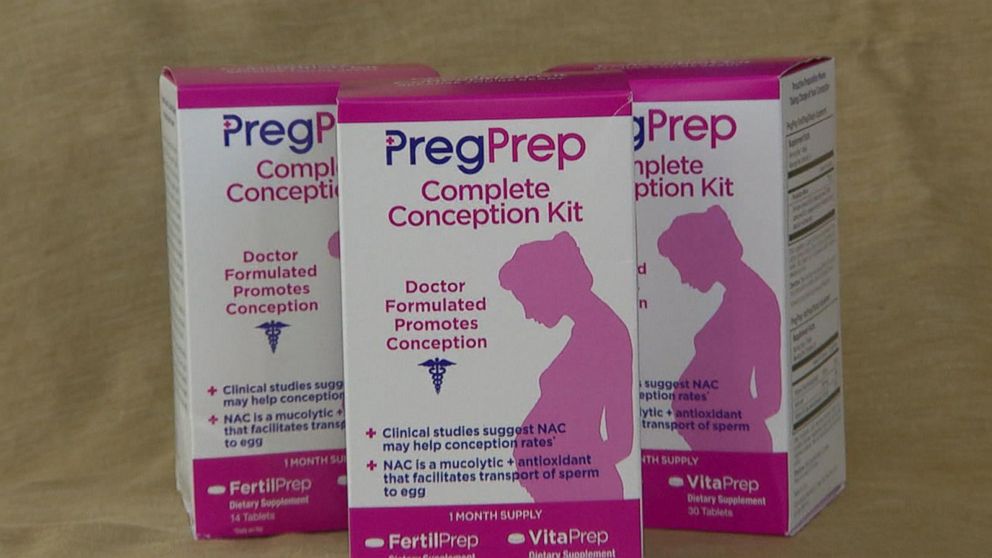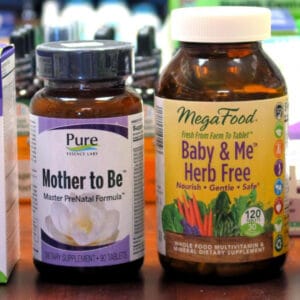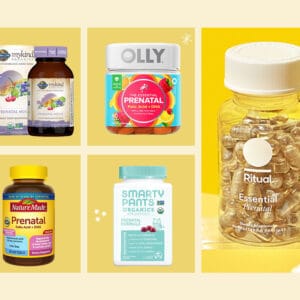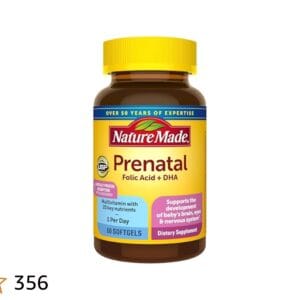For many couples, conceiving can be a challenging and emotional journey. While there are various factors that influence fertility, nutrition plays a significant role in reproductive health. Certain vitamins and minerals can enhance fertility by improving egg and sperm quality, regulating hormones, and supporting overall reproductive well-being. By incorporating specific fertility vitamins into their diet, individuals can potentially boost their chances of conception. This article explores the essential vitamins and nutrients that can help support fertility and increase the likelihood of a successful pregnancy. Key fertility-boosting nutrients are highlighted.

Understanding Fertility Vitamins and Their Role in Conception
Fertility vitamins are nutritional supplements designed to support reproductive health and enhance the chances of conception. These vitamins typically contain a blend of essential nutrients, minerals, and antioxidants that play a crucial role in optimizing fertility in both men and women. By addressing nutritional deficiencies and promoting overall reproductive well-being, fertility vitamins can be a valuable addition to a couple’s fertility journey.
The Importance of Folic Acid in Fertility
Folic acid is a vital nutrient for fertility, particularly for women. It is well-documented that folic acid supplementation before and during early pregnancy can significantly reduce the risk of neural tube defects in the developing fetus. Moreover, folic acid is essential for ovulation and overall reproductive health. A deficiency in folic acid can lead to irregular ovulation, making it more challenging to conceive. | Nutrient | Role in Fertility | Recommended Daily Intake | | — | — | — | | Folic Acid | Supports ovulation and fetal development | 400-800 mcg | | Vitamin D | Regulates reproductive hormones | 600-800 IU | | Omega-3 Fatty Acids | Enhances sperm quality and hormonal balance | 500-1000 mg |
Vitamin D and Its Impact on Fertility
Vitamin D is another crucial nutrient that plays a significant role in fertility. Research has shown that vitamin D deficiency is associated with various reproductive issues, including polycystic ovary syndrome (PCOS) and decreased sperm quality. Vitamin D helps regulate reproductive hormones and supports overall reproductive health. | Vitamin D Level | Fertility Impact | Recommended Action | | — | — | — | | Deficient (<20 ng/mL) | Increased risk of reproductive issues | Supplementation and sun exposure | | Insufficient (20-29 ng/mL) | Potential fertility benefits with supplementation | Monitor levels and adjust supplementation | | Sufficient (≥30 ng/mL) | Optimal fertility support | Maintain healthy lifestyle and monitor levels |
The Role of Antioxidants in Enhancing Fertility
Antioxidants, such as vitamin C, vitamin E, and CoQ10, are essential for protecting reproductive cells from oxidative stress and damage. Oxidative stress can impair sperm quality and ovulation, making it more challenging to conceive. Antioxidants help neutralize free radicals, promoting a healthier reproductive environment. | Antioxidant | Fertility Benefits | Food Sources | | — | — | — | | Vitamin C | Enhances sperm quality and ovulation | Citrus fruits, berries, and leafy greens | | Vitamin E | Protects against oxidative stress | Nuts, seeds, and vegetable oils | | CoQ10 | Supports energy production in reproductive cells | Meat, fish, and whole grains |
Iron and Zinc: Essential Minerals for Fertility
Iron and zinc are two essential minerals that play a crucial role in fertility. Iron supports healthy ovulation, while zinc is vital for sperm quality and testosterone production. Deficiencies in these minerals can lead to reproductive issues, making it essential to ensure adequate intake through diet and supplementation. | Mineral | Fertility Role | Recommended Daily Intake | | — | — | — | | Iron | Supports ovulation and reproductive health | 18 mg (women), 8 mg (men) | | Zinc | Essential for sperm quality and testosterone | 8 mg (women), 11 mg (men) |
Choosing the Right Fertility Vitamin
With numerous fertility vitamins available, selecting the right supplement can be overwhelming. When choosing a fertility vitamin, look for a product that contains a comprehensive blend of essential nutrients, including folic acid, vitamin D, antioxidants, iron, and zinc. Consult with a healthcare professional to determine the best supplement for your individual needs.
| Key Ingredient | Importance for Fertility |
|---|---|
| Folic Acid | Supports ovulation and fetal development |
| Vitamin D | Regulates reproductive hormones |
| Antioxidants | Protects reproductive cells from oxidative stress |
| Iron | Supports healthy ovulation |
| Zinc | Essential for sperm quality and testosterone |
Which vitamin is best for conceiving?

When it comes to conceiving, a well-balanced diet rich in essential nutrients is crucial. Among the various vitamins and minerals, folic acid is often considered one of the most important for conception and fetal development. Folic acid helps prevent birth defects of the baby’s brain and spine.
Nutrients Essential for Conception
A healthy diet that includes a variety of whole foods can provide the necessary nutrients for conception. Key nutrients include vitamins, minerals, and antioxidants that support reproductive health.
- Iron is vital for healthy ovulation and maintaining a healthy pregnancy.
- Zinc supports the immune system and is involved in numerous aspects of reproductive health.
- Omega-3 fatty acids are important for hormone production and overall health.
The Role of Folic Acid in Conception
Folic acid, or vitamin B9, is critical for preventing neural tube defects in the developing fetus. It is recommended that women take a folic acid supplement starting at least one month before conception and continuing through the first trimester of pregnancy.
- Taking 400 to 800 micrograms of folic acid daily is advised for women of childbearing age.
- Folic acid can be found in foods such as leafy greens, legumes, and fortified cereals.
- A deficiency in folic acid has been linked to an increased risk of miscarriage and other pregnancy complications.
Other Vitamins and Minerals for Fertility
In addition to folic acid, other vitamins and minerals play a role in fertility. A diet rich in antioxidants, such as vitamin C and vitamin E, can help protect sperm and egg cells from damage.
- Vitamin D is important for overall reproductive health and has been linked to improved fertility outcomes.
- Adequate intake of calcium supports hormone regulation and overall health.
- A balanced intake of B vitamins is necessary for energy production and hormone regulation.
How can I boost my fertility to get pregnant?

To boost your fertility and increase your chances of getting pregnant, it is essential to maintain a healthy lifestyle. This includes a balanced diet rich in essential nutrients, such as folic acid, iron, and zinc, which play a crucial role in reproductive health. A well-balanced diet can be achieved by consuming plenty of fruits, vegetables, whole grains, and lean proteins.
Nutritional Factors Affecting Fertility
A well-balanced diet is crucial for fertility as it provides the body with the necessary nutrients and minerals to support reproductive health. Certain foods have been shown to have a positive impact on fertility, while others can have a negative effect.
- Eating foods rich in antioxidants, such as berries and leafy greens, can help reduce oxidative stress and improve fertility.
- Consuming omega-3 fatty acids found in fatty fish, nuts, and seeds can help regulate hormones and improve ovulation.
- Avoiding processed and high-sugar foods can help maintain a healthy weight and reduce inflammation, both of which are beneficial for fertility.
Lifestyle Changes to Enhance Fertility
In addition to a healthy diet, certain lifestyle changes can also help boost fertility. Regular exercise and maintaining a healthy weight are crucial, as being overweight or underweight can disrupt ovulation and reduce fertility.
- Engaging in moderate-intensity exercise, such as brisk walking or cycling, can help improve insulin sensitivity and reduce stress.
- Stress management techniques, such as meditation or yoga, can help regulate hormones and improve overall well-being.
- Avoiding excessive alcohol consumption and quitting smoking can also help improve fertility, as both can have a negative impact on reproductive health.
Medical and Supplementation Interventions
For some individuals, medical interventions or supplements may be necessary to boost fertility. Folic acid supplements, for example, are often recommended for women trying to conceive, as they can help prevent birth defects.
- Consulting a healthcare provider before starting any supplements or medical treatments is essential to determine the best course of action.
- Fertility medications, such as clomiphene citrate, can help stimulate ovulation and improve fertility.
- Alternative therapies, such as acupuncture, may also be beneficial in improving fertility, although more research is needed to confirm their effectiveness.
What pills help you get pregnant faster?

There are several types of pills that can help women get pregnant faster, primarily by addressing underlying fertility issues. These include medications that stimulate ovulation, regulate hormonal imbalances, and improve overall reproductive health.
Fertility Medications
Fertility medications are designed to stimulate ovulation in women who do not ovulate regularly. These medications work by influencing hormone production, which in turn encourages the ovaries to release an egg. The most commonly prescribed fertility medications include:
- Clomiphene citrate (Clomid), which is often the first line of treatment for women with irregular ovulation.
- Letrozole (Femara), another medication used to stimulate ovulation, particularly in women with polycystic ovary syndrome (PCOS).
- Gonadotropins, which are injectable medications that directly stimulate the ovaries to produce eggs.
Hormone-Regulating Medications
Some women may benefit from hormone-regulating medications to help get pregnant faster. These medications address hormonal imbalances that can affect fertility. For instance:
- Progesterone supplements can support the luteal phase, ensuring a healthy environment for implantation of a fertilized egg.
- Thyroid medications are essential for women with thyroid disorders, as untreated thyroid conditions can significantly impact fertility.
- Metformin is used in some cases to treat insulin resistance, often associated with PCOS, thereby improving ovulation and fertility.
Supplements and Vitamins
While not pills in the traditional pharmaceutical sense, certain supplements and vitamins can support fertility. It’s essential to consult a healthcare provider before adding any supplements to your regimen. Key supplements include:
- Folic acid, crucial for preventing birth defects of the baby’s brain or spine.
- Omega-3 fatty acids, which support overall health and may improve fertility.
- Antioxidants like vitamin C and E, which can help protect eggs and sperm from oxidative stress.
What are the best fertility pills to get pregnant?

The best fertility pills to get pregnant vary depending on the individual’s specific needs and medical conditions. Clomiphene citrate, commonly known by the brand name Clomid, is often considered a first-line treatment for women with anovulatory infertility. It works by stimulating the release of hormones that trigger ovulation.
Fertility Pills for Women with PCOS
For women with Polycystic Ovary Syndrome (PCOS), fertility pills like Clomid or letrozole can be effective in inducing ovulation. These medications help regulate menstrual cycles and improve the chances of getting pregnant. Some key benefits of these fertility pills include:
- Increased ovulation: Clomid and letrozole stimulate the ovaries to release eggs, increasing the chances of fertilization.
- Regulated menstrual cycles: These medications help regulate menstrual cycles, making it easier to predict ovulation and time intercourse.
- Improved fertility: By inducing ovulation and regulating menstrual cycles, these fertility pills can significantly improve fertility in women with PCOS.
Alternative Fertility Treatments
In some cases, women may not respond to Clomid or letrozole, or they may require additional treatment to get pregnant. Gonadotropin-releasing hormone (GnRH) agonists and gonadotropins are alternative fertility treatments that can be used alone or in combination with other medications. These treatments can be more effective for women with certain medical conditions or those who have not responded to other fertility pills. Some key considerations for alternative fertility treatments include:
- Increased risk of multiple pregnancy: Gonadotropins can increase the risk of multiple pregnancy, which can be a concern for some women.
- More invasive treatment: Gonadotropins are typically administered via injection, which can be more invasive than taking oral fertility pills.
- Careful monitoring required: Women undergoing treatment with gonadotropins require careful monitoring to minimize the risk of complications.
Lifestyle Changes to Enhance Fertility
In addition to fertility pills, lifestyle changes can also play a crucial role in enhancing fertility. Maintaining a healthy weight, eating a balanced diet, and reducing stress can all contribute to improved fertility. Some key lifestyle changes to consider include:
- Dietary changes: Eating a diet rich in fruits, vegetables, and whole grains can help support fertility.
- Regular exercise: Engaging in regular physical activity can help maintain a healthy weight and reduce stress.
- Stress reduction techniques: Practicing stress reduction techniques like meditation or yoga can help minimize the negative impact of stress on fertility.
Frequently Asked Questions
What are the essential fertility vitamins that can boost conception?
When it comes to boosting conception, certain fertility vitamins play a crucial role. Folic acid, for instance, is vital for preventing birth defects of the baby’s brain and spine. Additionally, Vitamin D is essential as it has been linked to improved fertility in both men and women. Other crucial fertility vitamins include Vitamin B12, which is necessary for the production of red blood cells, and Iron, which supports the health of the reproductive system. A well-balanced diet rich in these vitamins, along with a healthy lifestyle, can significantly enhance fertility.
How do fertility vitamins support conception in women?
Fertility vitamins support conception in women by addressing nutritional deficiencies that could be hindering their ability to conceive. Antioxidants like Vitamin C and Vitamin E help protect the eggs from oxidative stress, thereby improving their quality. Moreover, Omega-3 fatty acids support hormone production and overall reproductive health. Ensuring adequate intake of these vitamins can help regulate menstrual cycles, improve egg health, and create a more favorable environment for conception.
Can fertility vitamins improve sperm quality in men?
Yes, certain fertility vitamins are known to improve sperm quality in men. Zinc, for example, is crucial for testosterone production and sperm development. Selenium is another important mineral that acts as an antioxidant, protecting sperm from damage. Vitamin C and Coenzyme Q10 (CoQ10) also play significant roles in enhancing sperm motility and overall sperm health. A diet rich in these nutrients can help improve sperm count, motility, and morphology, thereby increasing the chances of successful conception.
Are there any specific guidelines for taking fertility vitamins?
When taking fertility vitamins, it’s essential to follow specific guidelines to maximize their effectiveness. It’s recommended to start with a balanced prenatal vitamin that contains a broad spectrum of essential nutrients. Additionally, consider supplements that are specifically formulated to support fertility, containing targeted nutrients like folate instead of folic acid for better absorption. Always consult with a healthcare provider before starting any supplement regimen to ensure it aligns with your individual needs and health status.














